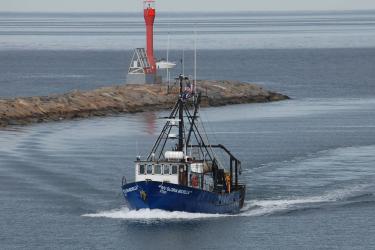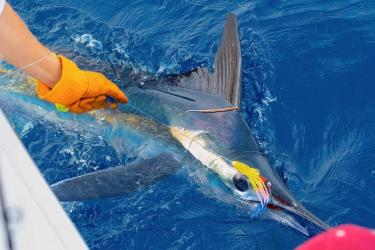Can you tell us about your science journey, your career in science?
My journey as an applied anthropologist began as a child when I lived in a multicultural neighborhood in Los Angeles, California. There I was exposed to people with a variety of different languages, beliefs, and traditions. My interest in other cultures continued and it later led me to Europe, Africa, Asia, and Central America.
After receiving a bachelor’s degree in business management from California Polytechnic University, I completed a master’s degree in intercultural administration at the School for International Training. I conducted research on how food beliefs affected maternal nutrition in Nepal and this led me to study nutritional anthropology with a focus on women. I received a Fulbright Scholarship and a training grant from the Social Science Research Council to receive technical training to support social science. I learned the basics of fisheries science, like making nets and collecting data that I still use to help communicate with fishermen and scientists. I used this background to study nutrition and cultural practices between fishing communities in Madagascar and found that those with less access to commercial markets actually had better wellness and stronger cultural networks, meaning those that lived in more isolated communities with informal barter economies were better off in terms of well-being (e.g. better nutrition because of less access to processed foods) than those that lived in or near urban centers with access to formal commercial markets, and that cultural networks in more remote communities were larger and stronger — you could turn to more people if you needed something. With this work, I earned a doctorate in applied anthropology from the University of Connecticut.
Not long after graduation, I began work at the Science Center’s Social Sciences Branch, where I integrate information from social science, fisheries science, and commercial fishermen. Like many things, my work has evolved over time, shifting from fishing community profile collection to method development for predicting community responses to change. Most of my research has focused on understanding fishing community vulnerability and resilience as fishing regulations and climate conditions change.
Could you share an example of a hurdle or obstacle you experienced during your science journey? How did you overcome it?
A few hurdles I encountered were related to career path opportunities. I decided to enter the field of anthropology because of my interest in people from other cultures, but I knew from the beginning that I didn’t want a career in academia because teaching didn’t appeal to me. At the time, going the academic route was the norm, expected. I was, and still am, committed to using anthropological methods to solve practical problems despite not pursuing a career in academia. I considered working for organizations such as the United States Agency for International Development or the United Nations High Commission for Refugees, but decided that I wanted to live and work in the U.S. which is a challenge when working for these agencies. While considering these agencies, I found that my fellow graduate students with experience in agencies like these had acquired both qualitative and quantitative research skills. That motivated me to stretch beyond the traditional curriculum of cultural, linguistic, or nutritional anthropology and take courses in statistics and epidemiology. I wanted to develop those qualitative and quantitative skills and make me more marketable in non-academic settings — especially in the U.S. which had limited opportunities at the time. Doing this helped me to link cultural practices to the incidence of malnutrition and diseases such as malaria or HIV. I ended up loving these courses. Basic literacy in these subjects has served me well and paved the way for my current work.
Tell us about a time in your career when you or your mentor, colleague, or coworker supported you or other women scientists by recognizing, nominating, or rewarding them, or was a champion of change and an ally, or amplified the voices of women when they weren’t being heard?
I was fortunate to learn from Bina Pradhan, a remarkable woman in Nepal who created and directed the Center for Women in Development in Kathmandu in the 1980s. She employed Nepalese women, taught them data collection techniques, and led them out to the villages to collect data on the status of women’s lives. My master’s thesis research was based on my work with her while I lived in Nepal. Not only did she provide professional development opportunities for women, but she inspired me and many other women to advocate for themselves and develop self-reliance in a very patriarchal society.
What advice do you have for the next generation of women scientists about a science career?
I think it is important to be open to experiences beyond what you imagine for yourself. Step outside your comfort zone. Develop a multidisciplinary perspective that will enable you to work with researchers from different backgrounds. Learn to communicate your work to a broad audience, from policy-makers to the public. I was able to do this through practice over time, but nowadays there are classes, workshops, fellowships, and conferences that focus on developing those skills. Take courses in qualitative methods to learn, for example, how to conduct an oral history interview, as well as quantitative research methods to learn how to design and implement a survey and be sure to develop your statistical skills.



